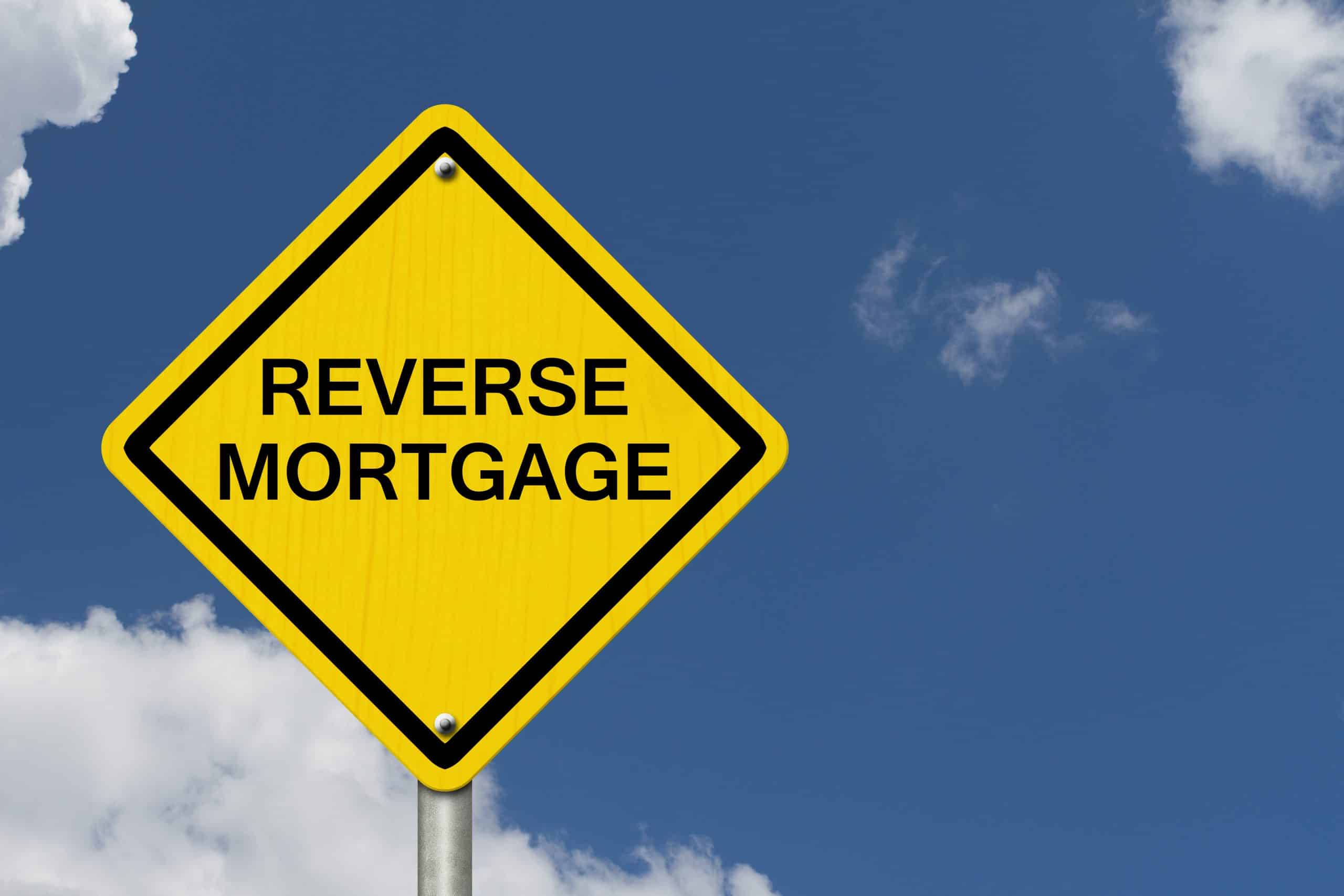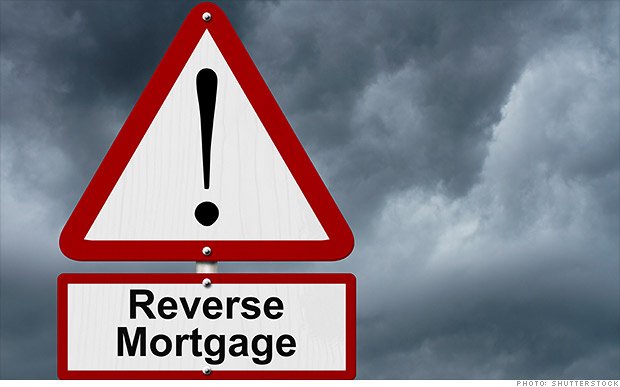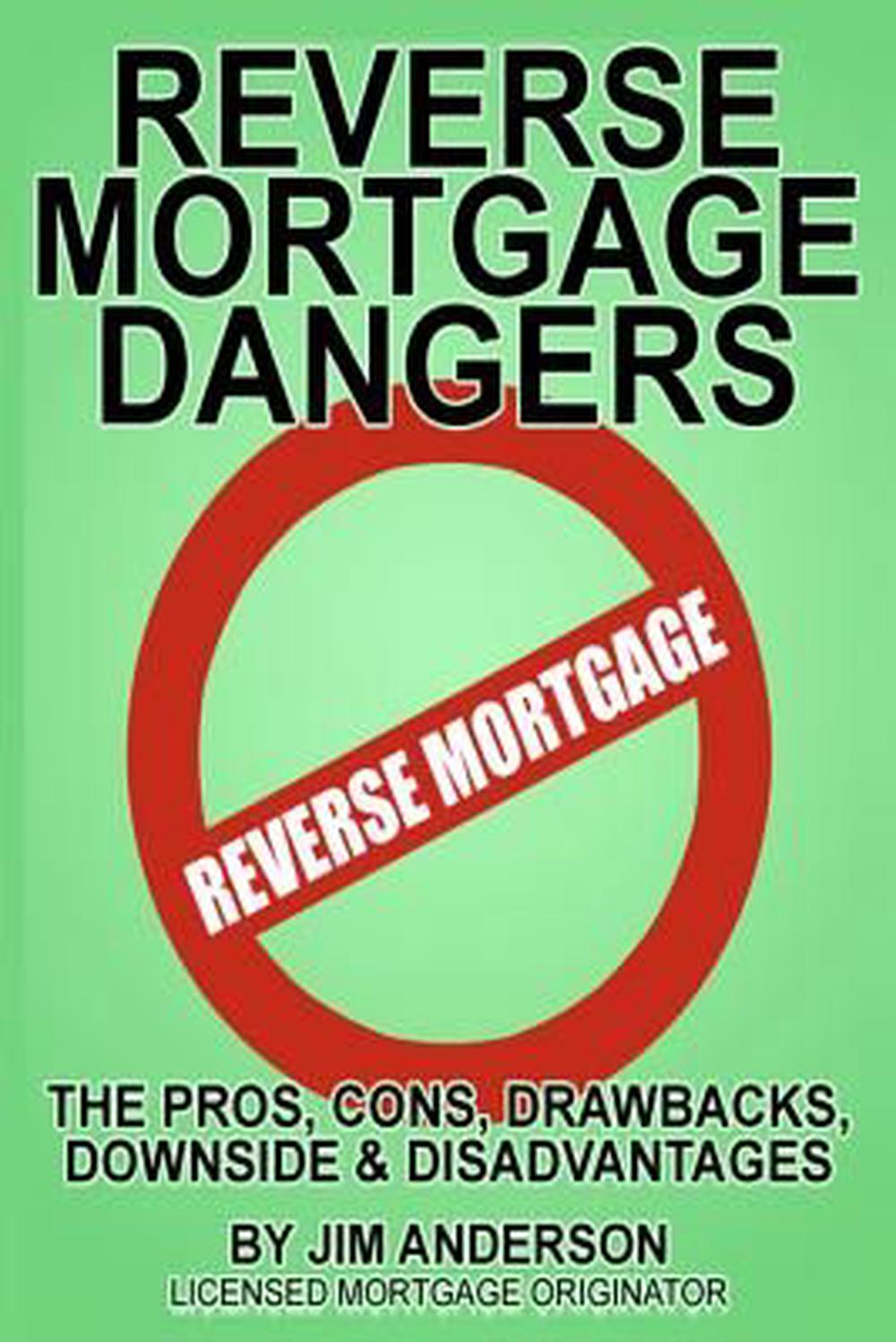Guidance On Reverse Mortgage Product Risks
Introduction
The Agencies developed this guidance to assist their regulated financial institutions in managing risks presented by reverse mortgage products. Reverse mortgages are home-secured loans, typically offered to elderly consumers, which present consumer protection issues that raise compliance and reputation risks for the institutions offering them.
Expected increases in the elderly population of the United States and other factors suggest that the use of reverse mortgages could expand significantly in coming years as more homeowners become eligible for reverse mortgage products. These loan products enable eligible borrowers to access the equity in their homes in order to meet emergency needs, to supplement their incomes, or to purchase a new home. Reverse mortgages can meet these objectives without subjecting borrowers to ongoing repayment obligations during the life of the loan, while enabling borrowers to remain in their homes. As a result, the Agencies believe that reverse mortgages, offered appropriately, could become an increasingly important mechanism for institutions to address credit needs of an aging population.
Background
The reverse mortgage market currently consists of two basic types of reverse mortgage products: proprietary products offered by an individual lender and FHA-insured reverse mortgages offered under the HECM program. HECM reverse mortgages have accounted for approximately 90% of all reverse mortgages. .
Legal considerations
Guidance
Recent Reverse Mortgage Counseling Issues
The timing of the newly-proposed guidance corresponds with other issues related to reverse mortgage counseling in particular states. In Massachusetts, reverse mortgage business has been effectively paused due to issues of the states in-person counseling requirement conflicting with the realities of the COVID-19 coronavirus pandemic, which presents a greater risk of developing severe illness for seniors and immunocompromised persons.
Recently, a new bill advanced to the desk of Gov. Charlie Baker which would restore remote counseling relief through the summer, and recent indications show the potential for a revived legislative debate which could lead to a more permanent fix for the issue.
A state representative in Pennsylvania also recently took aim at reverse mortgage counseling in a newly-proposed piece of legislation designed to curb the pitfalls of engaging with reverse mortgage products by restricting the counseling process to face-to-face sessions only in the state, with some exceptions.
What Are Some Of The Risks Of A Reverse Mortgage
Reverse mortgages can be a great way for older homeowners to supplement their income, pay for major expenses or complement an overall retirement plan. But, like any loan, reverse mortgages do come with certain risks. At Alpha Mortgage, we believe that knowledge is power and that understanding potential risks can help our customers reduce their chance of problems down the road.
To help you better understand these risks, take a look at the following and then speak with a reputable reverse mortgage specialists to discuss whether or not a reverse mortgage is right for you.
You May Like: Can You Get A Reverse Mortgage On A Manufactured Home
What Are The Risks Of A Reverse Mortgage
The biggest risk of a reverse mortgage is the accumulation of compound interest charges. If youre not careful, these can quickly add up, until the majority of your homes value is tied up in the reverse mortgage. This can limit what else you can use your home equity for, such as applying for other credit products, or guaranteeing a relatives home loan application.
When your home is eventually sold, the more of its value that goes towards servicing your reverse mortgage, the less you can use for other purposes, such as paying for aged care, medical treatments, or just a comfortable retirement lifestyle. Your heirs may also miss out a percentage of their inheritance if the value of your home must cover the cost of your reverse mortgage.
Using a reverse mortgage to access extra income from your home equity may affect your ability to access the age pension. Depending on your superannuation situation, this could make managing your retirement lifestyle more challenging.
While you have a reverse mortgage, your lender will have a financial interest in your home. This could mean youll need to consult with the lender before making changes to the property that could affect its value, such as renovating. The lender may also require that you keep your home well-maintained in order to preserve its value, at your own expense.
Your Heirs Have Options

Reverse mortgages can be paid off by borrowers sooner, but typically end when the borrower moves, sells the home or passes away. In an estate situation, heirs have several choices: They can sell the property to repay the debt and keep any equity above the loan balance they can keep the home and refinance the reverse mortgage balance if the propertys value is sufficient or, if the debt exceeds the value of the property, heirs can settle the loan by giving the title back to the lender. The lender can then file a claim for any unpaid balance with the insurer .
Also Check: Chase Recast
Reverse Mortgages In Canada: The Pros And Cons
Thereâs been a lot of talk about reverse mortgages over the past few years, with supporters and opponents both being very vocal. Reverse mortgages are used by older Canadians to provide a source of retirement funds, and with more than 60% of Canadians concerned theyâll outlive their retirement savings, itâs no surprise reverse mortgages are a talking point .
However, there are pros and cons to getting a reverse mortgage. Hereâs everything you need to know about reverse mortgages in Canada.
Older People Getting Divorced
I know of one person who considered using a reverse mortgage during a divorce. In that situation, the husband needed to buy the wifes 50% interest in the house. The couple had no mortgage on the house. The husband had some money, but not enough to cover the wifes 50% interest. I never found out whether he used a reverse mortgage for the financing, but I thought it would have been a very creative use of a reverse mortgage.
Recommended Reading: Can You Get Preapproved For A Mortgage Without Hurting Your Credit
Reverse Mortgages Present Benefits And Risks For Senior Homeowners
Youve seen them advertised on T.V. and asked, What is a reverse mortgage?
A reverse mortgage is a loan available to senior homeowners that allows them to convert part of the equity in their homes into payments from lenders. Seniors may use reverse mortgages to help supplement their Social Security or other retirement income.
Reverse mortgages saw a surge in popularity during the last financial crisis . Homeowners facing financial struggles under the current economic crisis caused by the coronavirus pandemic might also be considering a reverse mortgage to supplement their income. While they can be used as financial tools to allow older homeowners to stay in their homes, they come with risks.
Unlike traditional mortgages, a reverse mortgage does not require a borrower to repay the loan as long as they meet certain conditions such as maintaining their home and paying property taxes and homeowners insurance. Also unlike forward mortgages, reverse mortgages do not have fixed terms . Instead, the loan is in place until the borrower dies, pays off the loan, leaves the property , or defaults. At that point, the loan terminates and the senior have to pay back the loan.
Congress established the HECM program in 1988 to help meet the financial needs of elderly homeowners. However, in recent years, a growing percentage of reverse mortgages have ended because borrowers defaulted on their loans.
Why would a loan that requires no monthly payments default?
The Loan Balance Rises Every Month
One of the major selling points of a reverse mortgage is that the loan does not have to be repaid until the borrower is permanently out of the house.
This makes it an ideal product for many aging seniors intent on aging in place.
The downside, of course, is that while the balance on a normal loan declines each month, the balance on a reverse mortgage increases each month.
Because the loan does not have to be repaid until the borrower is out of the house, this distinction is mostly irrelevant.
However, on the remote chance that something goes wrong and a borrower does not meet the obligations of the loan, the lender can call the loan due, leaving the borrower in a huge hole.
Recommended Reading: Rocket Mortgage Launchpad
What Is A Reverse Mortgage Exactly
A reverse mortgage is a type of loan thats only available to senior homeownersages 62 and olderwho have plenty of home equity .
As with a second mortgage, a reverse mortgage allows you to access your home equity in the form of a lump sum, a line of creditor even a fixed monthly payment.
While reverse mortgages give seniors access to large sums of money, keep in mind, this means theyd be borrowing against their housemeaning theyd lose the house if something went wrong. If that sounds crazy, its because it is.
Merits And Risks Of Reverse Mortgage For Senior Homeowners
Reverse mortgage being a financial product helps retirees in unlocking the value of their home. Also called an equity release loan, the best reverse mortgage services helps to achieve a sum or income that helps in supporting your life during the retirement process. There are many merits and risks involved in the reverse mortgage basics and one must be aware of it before you start to apply.
You May Like: How Does Rocket Mortgage Work
What Are Some Alternatives To Reverse Mortgages
A reverse mortgage is best seen as a last resort to fund your retirement â there are other options for you to consider first. If youâre only partway through your retirement and can already see the balances of your savings accounts dwindle, you may want to consider one of these other options as a way to supplement your income:
You Could Have A Hard Time Navigating Changes To Your Status

Reverse mortgages can be complicated, and if something changes with your status, your reverse mortgage options can change, too. If you go to a long-term care facility, for example, would you still be considered a resident in your home? If you marry after obtaining a reverse mortgage, must your spouse move out of the property if you die? For details regarding these and other questions, its best to speak with a lender or an attorney who specializes in elder law, or contact a pro-bono legal clinic.
Read Also: Who Is Rocket Mortgage Owned By
Things To Beware Of In The Reverse Mortgage Process
- Sales tactics that require or suggest buying annuities, investments, long term care insurance, or other types of insurance policies with proceeds from the loan.
- Sales tactics involving contractors looking for proceeds to pay for home repairs.
- Advice to transfer title to the property out of you or your spouse’s name to qualify for the loan.
- Advice to make loan proceeds payable to third parties.
- Estate planning services offering to refer you to a lender for a fee or percentage of the loan. You get information on lenders from the DOB and Housing and Urban Development at no cost.
- Pressure to draw down all available equity into a single upfront disbursement.
Shopping For A Reverse Mortgage
If youre considering a reverse mortgage, shop around. Decide which type of reverse mortgage might be right for you. That might depend on what you want to do with the money. Compare the options, terms, and fees from various lenders. Learn as much as you can about reverse mortgages before you talk to a counselor or lender. And ask lots of questions to make sure a reverse mortgage could work for you and that youre getting the right kind for you.
Here are some things to consider:
Don’t Miss: Rocket Mortgage Conventional Loan
Who Is A Bad Candidate For A Reverse Mortgage
There are plenty of signs that a reverse mortgage is not a good choice:
- If youre planning to move Remember that you need a long runway to make paying all the closing costs, mortgage insurance premiums and other fees worth it. So, if you think you might want to relocate to a new destination or downsize to a smaller place anytime soon, steer clear of a reverse mortgage.
- If you might need to move due to health issues A reverse mortgage requires you to live in the home, which means that relocating to a nursing home or any kind of assisted living arrangement could result in needing to pay back the loan. If youve been concerned about health issues, its probably wise to avoid a reverse mortgage.
- If youre struggling to cover the other costs of your home One of the key components of a reverse mortgage is your ability to pay your property taxes and homeowners insurance. If youve faced challenges coming up with the cash for these essential costs, adding to your debt should not be on the table.
Debt Cannot Exceed Property Value
Real estate markets can fluctuate over time, and there is a risk that any home could lose value over time. If the reverse mortgage balance exceeds the fair market value, the homeowner and their families cannot be held responsible for the excess. Because reverse mortgages are considered non-recourse loans, the lender can only collect debt equal to the home value.
You May Like: Chase Recast Calculator
Hecm Limits Potential Impact On The Mmi Fund
Of the analysts who shared their perspectives with RMD, all agreed with the general thoughts of lenders and originators that a higher lending limit is likely to translate into higher volume. However, with the HECM book of business inside the MMI Fund only just now managing to return to positive territory for the first time since 2015, a higher lending limit could add to perceptions of reverse mortgages as expensive.
This is according to Wendy Peel, managing director and partner in reverse lending at BlackFin Group.
The sizable increase to the lending limit by HUD will likely help maintain or even increase loan volume, Peel says. However, mortgage insurance for new loans at the new lending limit could push the initial premium to nearly $20,000 for the borrower and unfortunately there is still a perception this loan could be predatory since it is a high-cost loan mainly due to this fee.
High fees for HECM borrowers should potentially be explored to offset this perception, she says.
The MMI Fund was recently reported as improved since the 2% initial fee was imposed in 2018 ensuring the loan remains a non-recourse loan making the HECM program viable, Peel explains. Perhaps now is a good time to look for opportunities to offset some of these borrower fees.
That disclosure centered on the reports attribution of the HECM contribution to the Funds capital ratio largely coming from high levels of home price appreciation , he says.
Home Equity Loan Or Home Equity Line Of Credit
A home equity loan is a second mortgage thats secured by the borrowers home equity and paid out in a lump sum. Similarly, a home equity line of creditor HELOClets homeowners borrow against their equity up to a certain limit and access those funds on an as-needed basis. This means you only pay interest on your current balance, not a lump sum loan.
In contrast to a reverse mortgage, you will have to make monthly payments, and lenders will evaluate your income and credit when reviewing your application.
You May Like: Requirements For Mortgage Approval
You Live With Someone
If you have friends, relatives, or roommates living with you who are not on the loan paperwork, they could conceivably land on the street after your death. Those boarders may also be forced to vacate the home if you move out for more than a year because reverse mortgages require borrowers to live in the home, which is considered their primary residence.
If a borrower dies, sells their home, or moves out, the loan immediately becomes due. One solution is to list your boarders on the loan paperwork however, no one living with you under the age of 62 may be a borrower on the reverse mortgage.
What Are Risks Of Reverse Mortgages

As with any standard mortgage, reverse mortgages have a certain degree of risk associated with them. Your home is, after all, probably the single most valuable asset that you will possess during your lifetime. That being said, there are a couple of risks associated with reverse mortgages that arent associated with standard mortgages.
The first potential risk of a reverse mortgage is that it can eat away at the equity that you have in your home. With a reverse mortgage, you make no payments until you and your spouse no longer have an interest in the property. From the time you take out your reverse mortgage loan to the time that you pay off the mortgage, the interest on the money you have borrowed is capitalized, meaning it is added to the total mortgage amount. That means that the loan amount can continue growing. Now, Horizon Equity and the Canadian Home Income Plan are aware of the possibility of this, so CHIP has taken a measure to ensure that your loan amount never exceeds the value of your home.
Upon repayment, even if the loan amount accumulated does surpass the value of your home, CHIP guarantees that you will not have to pay that excess so youll never have negative equity through CHIPs program.
Overall, the risks associated with the CHIP reverse mortgage arent any more severe than any other standard mortgage. With Horizon Equity and CHIP, you can rest assured that you wont be stuck with negative home equity or with ridiculous lender and administration fees.
Read Also: Does Rocket Mortgage Service Their Own Loans
